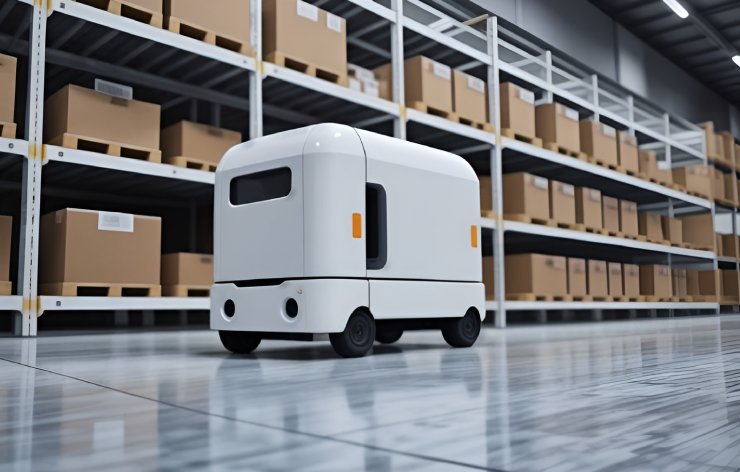Ecommerce and Logistics
Ecommerce and Logistics

Optimizing the Supply Chain in E-Commerce: The Importance of Modern Logistics
In the digital age, e-commerce has radically transformed the way people buy and sell products. From the comfort of a mobile device, consumers can access a wide range of products and services from all over the world. However, behind this apparent simplicity lies a complex logistics network that makes it possible for those products to reach their final destination efficiently and safely.
-
How Does Logistics Impact the Success of E-Commerce?
The success of e-commerce depends not only on the quality of the products or services offered, but also on the efficiency with which they are delivered to customers. Well-planned and executed logistics can make the difference between customer satisfaction and loss of sales. By optimizing the supply chain, companies can reduce costs, improve delivery times, and increase competitiveness in an increasingly saturated market.
-
What are the Logistical Challenges in E-Commerce?
The logistical challenges in e-commerce have been addressed through various innovative solutions.
Real-time efficient inventory management: The use of cloud-based inventory management systems allows companies to maintain accurate, real-time control of their inventory. This allows them to anticipate demand and avoid problems of shortage or excess inventory.
-
Fast and reliable delivery: To address this challenge, many e-commerce companies have established larger distribution networks and invested in strategically located distribution centers. Additionally, the optimization of delivery routes and the use of technologies such as routing algorithms and real-time tracking have improved the speed and reliability of deliveries.
-
Last-mile logistics: Last-mile logistics, which refers to the delivery of products from the distribution center to the customer's final destination, has been addressed through collaboration with specialized logistics companies and the use of technologies such as electric vehicles and drones for quick and efficient deliveries in densely populated urban areas.
-
Effective handling of returns: Handling returns is a crucial aspect in e-commerce, as customers expect a flexible and convenient return policy. To address this challenge, companies have implemented automated return processes, prepaid return labels, and centralized return centers to simplify the process for both customers and the company.
-
Optimizing shipping costs: To keep shipping costs under control, many e-commerce companies have negotiated preferential rates with carriers, implemented efficient packaging strategies to minimize package space and weight, and utilized route optimization algorithms to reduce operational costs associated with delivery.

How Can Companies Optimize their Supply Chain in E-Commerce?
To optimize their supply chain in e-commerce, companies must adopt a holistic approach that encompasses everything from inventory management to delivery to the end customer. This may involve implementing advanced warehouse management systems, utilizing real-time tracking technologies, and collaborating with reliable logistics partners. By investing in appropriate infrastructure and technology, companies can improve the efficiency of their operations and offer a superior shopping experience to their customers.
-
What Emerging Trends are Impacting Logistics in E-Commerce?
Emerging trends are transforming logistics in e-commerce and significantly impacting how operations are managed and customer demands are met. Some of these trends include:
Artificial Intelligence (AI) and Machine Learning: AI and machine learning are revolutionizing logistics in e-commerce by providing advanced predictive analytics and route optimization capabilities. This allows companies to forecast demand, anticipate purchasing patterns, and optimize inventory management and supply chain planning more efficiently.
-
Warehouse Automation: Warehouse automation, through the use of robots and autonomous systems, is streamlining picking, packing, and shipping processes in distribution centers. This not only increases operational efficiency but also reduces human errors and delivery times.
-
Drone and Autonomous Vehicle Delivery: Drone and autonomous vehicle delivery is gaining ground as a fast and efficient way to perform last-mile deliveries. These technologies are being tested and used in urban and suburban areas to reduce delivery times and operational costs.
-
Green and Sustainable Logistics: With an increasing focus on environmental sustainability, many e-commerce companies are adopting more eco-friendly logistics practices. This includes the use of electric vehicles, biodegradable packaging, and consolidated delivery strategies to reduce the carbon footprint of logistics operations.
-
How Can Companies Adapt to Changes in E-Commerce Logistics?
To adapt to changes in e-commerce logistics, companies must be willing to innovate and adapt quickly. This may involve adopting new technologies, optimizing existing processes, and collaborating with specialized logistics partners. By staying agile and responsive to market trends, companies can ensure that their supply chain is prepared to face the ever-evolving challenges of e-commerce.
-
At D-Log, we understand the importance of robust logistics and are committed to helping our clients optimize their operations for long-term success. Contact us today to find out how we can help take your e-commerce business to the next level.



